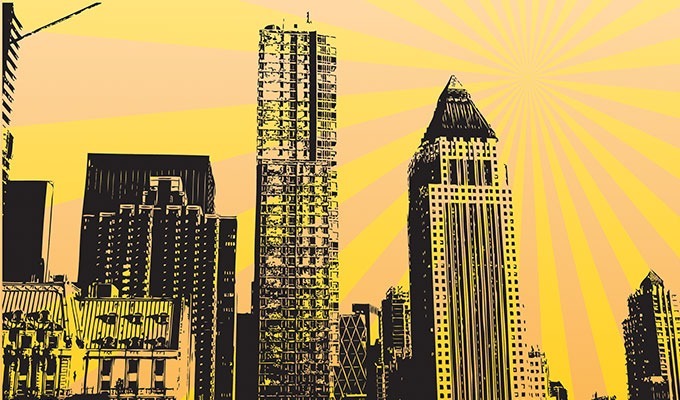A Nanjing lady, slightly advanced in years, was recently overheard to have asked her mixed-race grand daughter what she thought of her house in New Zealand. The little girl replied, “Well, it’s quite nice, but it’s a bit small, and kind-of old”.
“Pa!” snapped the grand mother. “Just tell your parents to buy you a new one.”
If there was ever a measure of how much China has caught up with the so-called developed world, one need look no further than the property market.
We read stories all the time of the sky rocketing prices for property in China; how the dream of becoming a homeowner is now as inaccessible to people here as it is in the West.
That was not quite what Xi Jinping had in mind when he coined the term “The Chinese Dream” upon his accession to power, while articulating his vision for the nation’s future back in 2012.
Hang on a second.
The above was all very true, until some interesting things started happening, things that have led to the present situation whereby an amazing 70 percent of Millenials (those aged between 20 and 37) on the mainland own their own home.
You read correctly; 70 percent.
Compare this with elsewhere. You know where this is going. That figure in the U.S.A. is 35 percent; in the U.K., 31 percent.
The survey, conducted by the Hong Kong and Shanghai Banking Corporation, also revealed that of the remaining, malnourished 30 percent who do not yet own a home, 91 percent intend to purchase a property in the next few years.
Now, before we look further into the phenomenon, a diversion, into a psyche that takes buying property and makes it into both obsession and art.
It all comes down to China’s household registration system, known as the “hukou”. All kinds of administrative functions for the people, as individuals, are tied to the hukou. One of them is where their children can go to school, for free at least, for both primary and middle school.
In practice, this means that people need own a property before they can have a hukou and that the school their children can attend must be in the vicinity of the hukou registration.
This makes property prices near decent schools unfathomable.
The upper levels of property in Nanjing now have an asking price of ¥40,000 per square metre, meaning that a decent 100 square metre apartment is going to cost ¥4 million. This kind of money buys a castle almost anywhere else, while it is also a figure that has almost doubled in the last 2 years alone.
If we go just down the road to Shanghai, prices for city-centre property are now at ¥100,000 per square metre. Beijing is the same.
The aforementioned figure of 70 percent home ownership is seemingly and additionally all the more remarkable when the rise in property prices is compared with salaries. Many people could save for their entire lifetime and still not be able to buy a home.
Here comes the interesting part.
The country’s National New Urbanisation Plan, that aims to transform rural residents into their urban equivalent, includes an aim to help 100 million rural migrant workers to obtain an urban hukou in order to settle down in cities.
Settle down, yes. Buy property, no.
The same HSBC report referred to earlier also revealed, most interestingly, that of those who do net yet own property, 60 percent of non-locals in major cities want to purchase back in their hometown, not in their newly adopted home where they work.
For this is where prices are lower. Much lower. As much as 10 times lower. Now, everything becomes so much more affordable, and the astounding figure quoted near the start of this article becomes all the more believable.
This brings us to the reality of today. The real estate industry has generated the most number of billionaires in China, since it was privatised in 1997. That, according to the Hurun Report, means that China is now the country with the fastest wealth creation in history.
That’s a dream come true if ever there was one.











